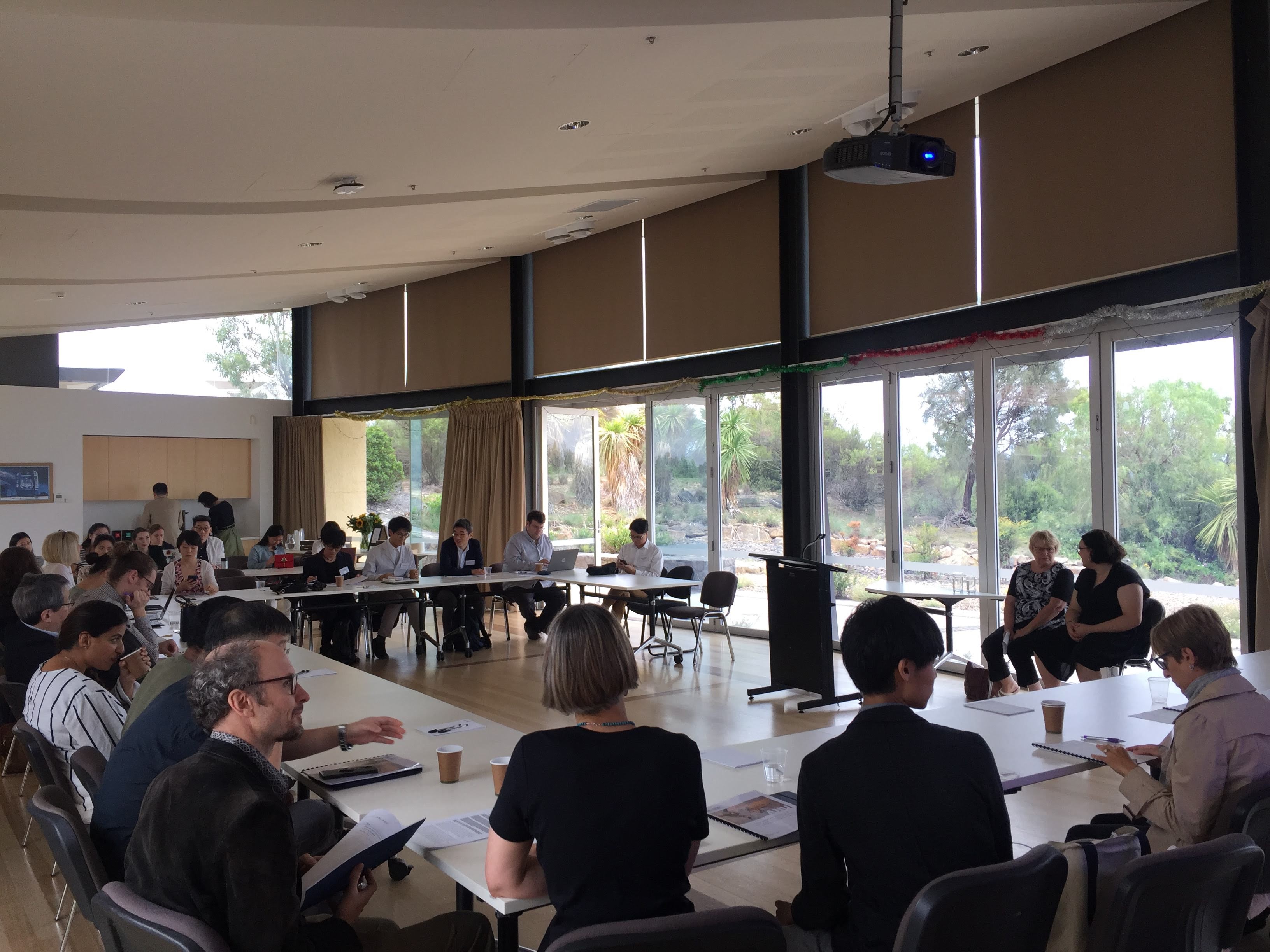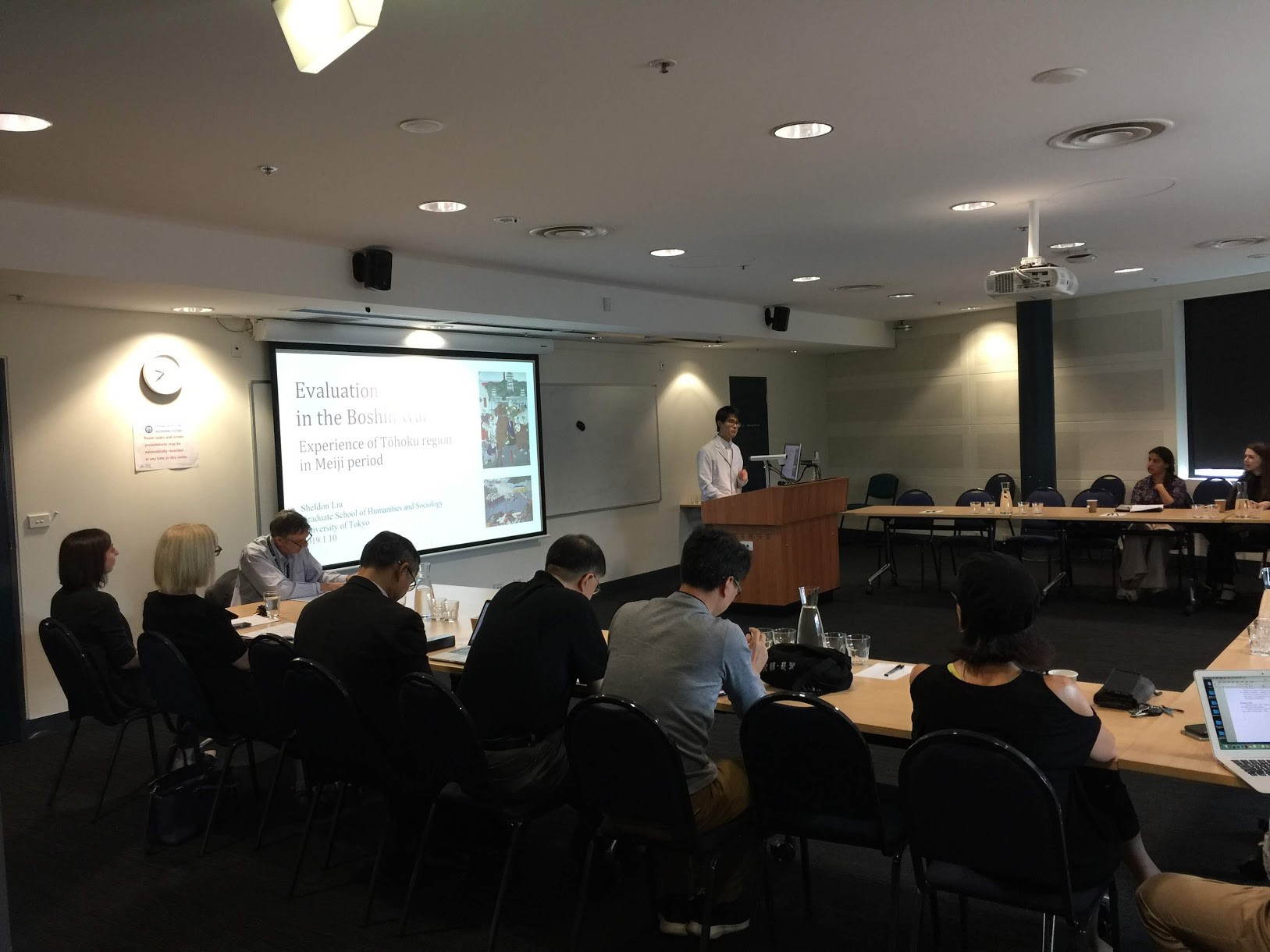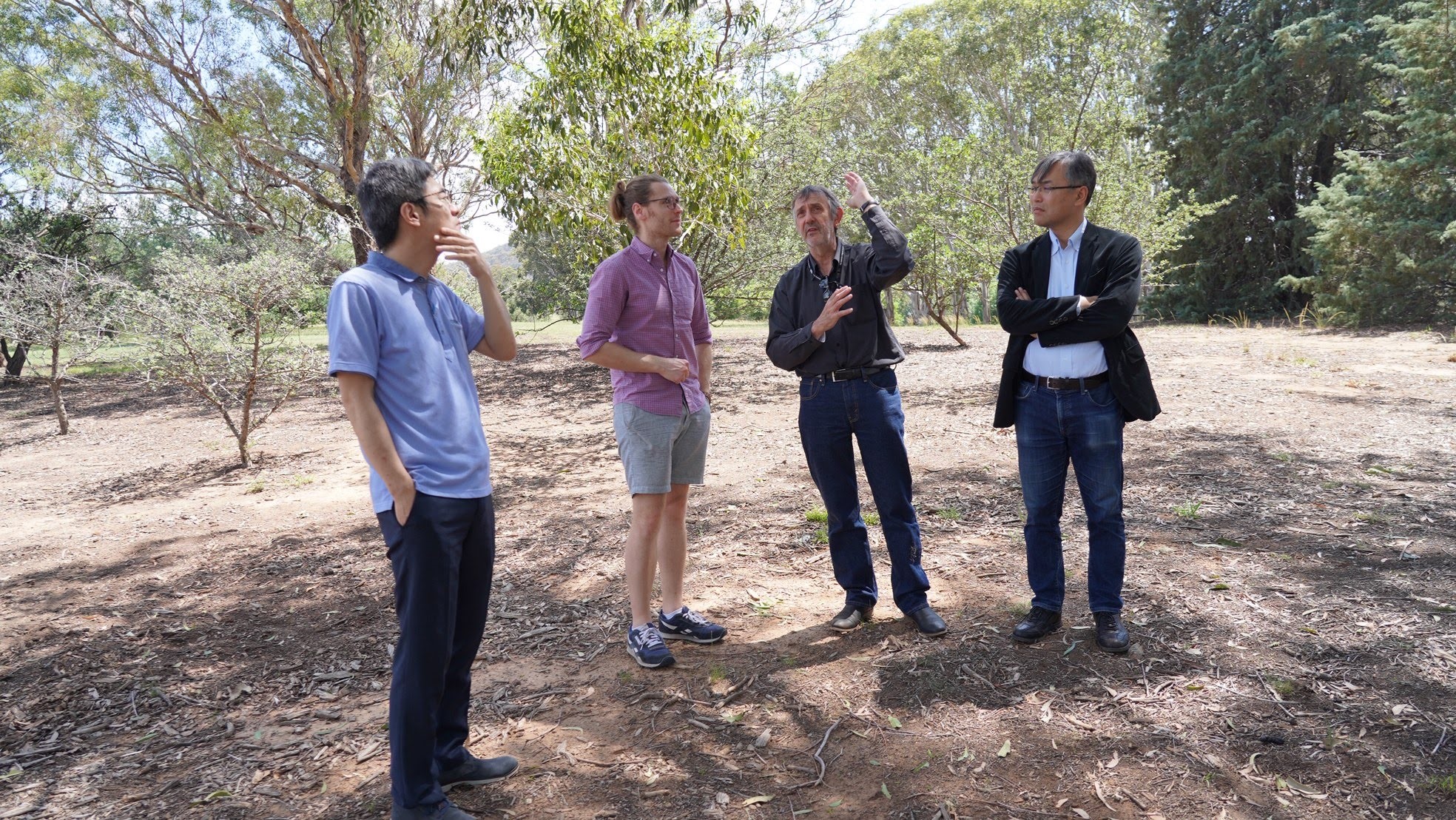【報告】 ANU-PKU-UTokyo Winter Institute 2019 (1)
Although only one month has passed after I attended this productive and unforgettable winter institute, I feel like describing an event happened years ago when starting to write this report. This is not only the first time for me to set foot into Australia but also to use academic English that intensively, which is a precious opportunity especially for students like me majoring in Tokugawa intellectual history. The language barrier was a challenge for me, yet atmosphere throughout the whole institute remained relaxing, in a sense that all student participants were allowed, or even encouraged to communicate actively with professors and fellow students.

Inspiring lectures and presentations given within four days were highly fruitful, multiple perspectives and cultural backgrounds encountered, bringing about cross-discipline dialogues that is comparatively insufficient in my field. Although contents every participant brought together varied largely from one another, I felt delighted and also excited as numerous consensus were reached and confirmed, severing to foster our new identity of "belonging to the earth" altogether. Capturing multiple concepts regardless of barrier of the nation-state, or critically reconsidering historical experiences such as "Empire" shall be among these common understandings. Besides, I kept feeling that all presenters conduct their research with a deep motivation, that they all own a special attachment to their work. Professor Tamara Jacka as an anthropologist shed light on urban-rural inequalities in Henan province, a widely seen social problem, Despite the fact that many Chinese people like me have not paid sufficient attention; Professor Nakajima brought us back to postwar Japan, during which Takeuchi Yoshimi supposed that Japanese people should embrace the new constitution as if it emerged within themselves. Undoubtedly, this issue also owns a close connection with our perspective towards modern historical revisionism, which deserves far more reflection especially when Emperor Akihito is due to abdication within three months; another presentation being especially impressive for me was given by my fellow participant Chia-Li Chuang from UTokyo, in which he illustrated how archaeology is strongly influenced or restricted by dominant political ideologies. As my dream to become an archeologist during my youth has faded away for years, I came to recognize more clearly than ever before that archaeology never only consists of "romantic" which belongs to the past, but it also largely shapes our self-identity.
From fruitful cross-discipline dialogues we had, I was able to absorb much knowledge and different perspectives. Additionally, it also helped me become aware of several points that shall be crucial when having an opportunity to attend similar international conferences in the future.

One of them is that, with participants coming from highly various cultural backgrounds and using various research methods, in order to foster a nurturing and constructive inter-discipline dialogue, it would be indispensable for me to reconsider what specific point I wish to make. Unable to be understood by all audience is nothing but failure, and it often indicates that even I have not reflected enough on my research. Besides, to open up oneself to fields unfamiliar with and remain a humble attitude is also of great importance. As Professor Paul Pickering put it so well during warp-up on the last day, we should not attend such winter institute if we supposed ourselves owning an extensive knowledge about other's research. Finally, although not having fully achieved, I came to recognize that forcing myself to raise questions is also a crucial part to enhance my capability of critical thinking. By doing this, I would have been more concentrated on every presenter's opinion, and provoke an even more adequate and productive dialogue.
Besides in-depth presentations and heated discussions, participants were also given a chance to visit the national museum at which a welcoming dinner greeted us. By visiting these places, I came to ponder on how the Australia government constructed its national history, since it has to tackle difficulties when mentioning indigenous people, who are already on the verge of extinction. The bloody history of colonialism happened at this vast continent once made me rather gloomy, until I was relieved by exotic flora and fauna at the national zoo later.
The days I spent in Canberra was invaluable in all kinds of sense, not only as the place itself was lovely and worth a long-term visit, but it is more because of people having us paid great efforts to make our stay a comfortable one. By attending this year’s Winter Institute, I was given great opportunities to construct bond relations with scholars I would not be possible to engage with before personally. I believe that this is only a starting point of my path learning to join the academic world, and I shall cherish this experience and apply whatever I learned in my future research as well as life.

By Liu Sheldon (East Asian Thoughts and Culture, Graduate School of Humanities and Sociology, The University of Tokyo)






